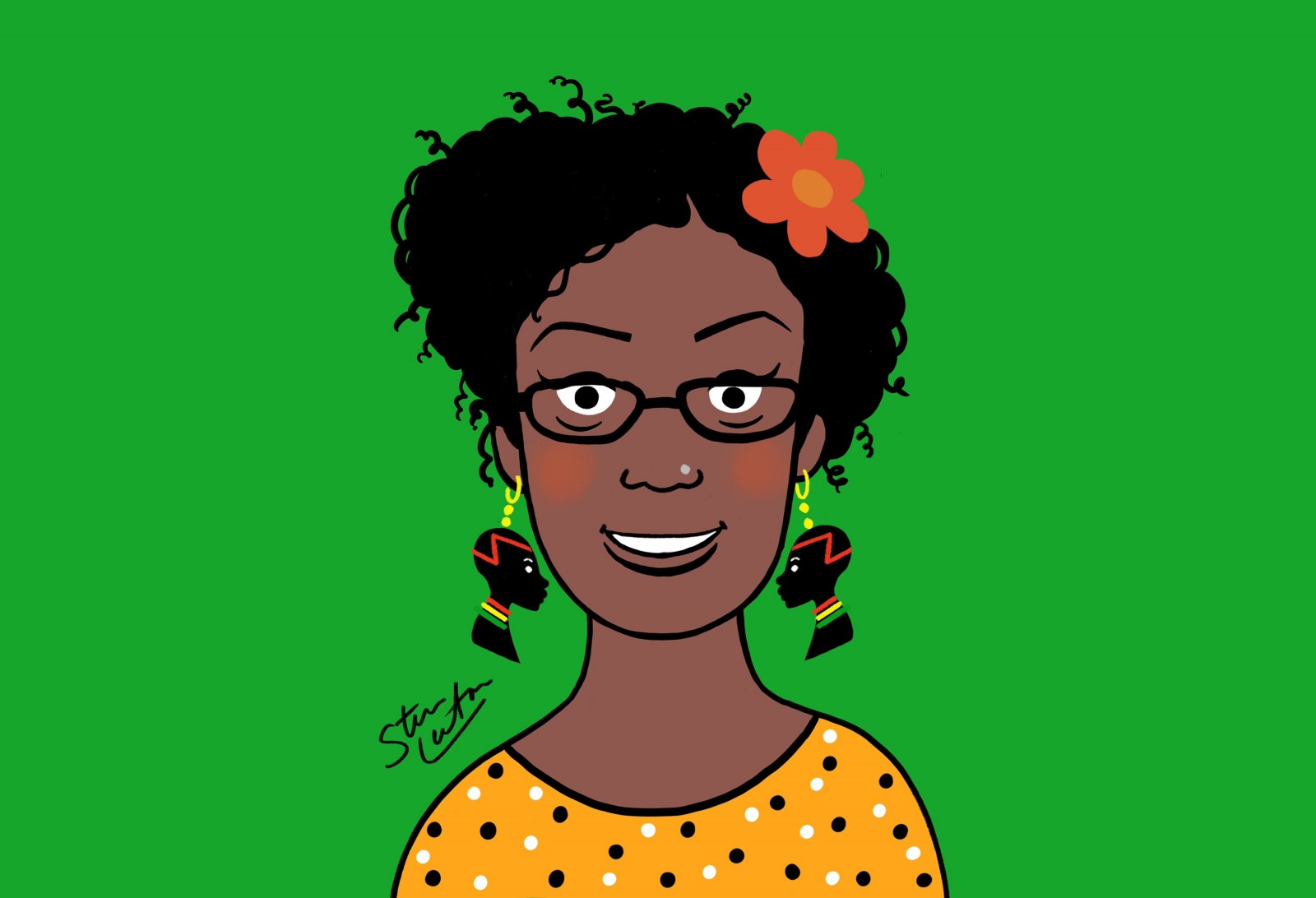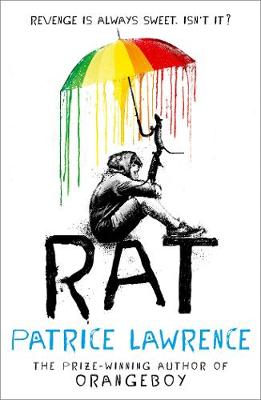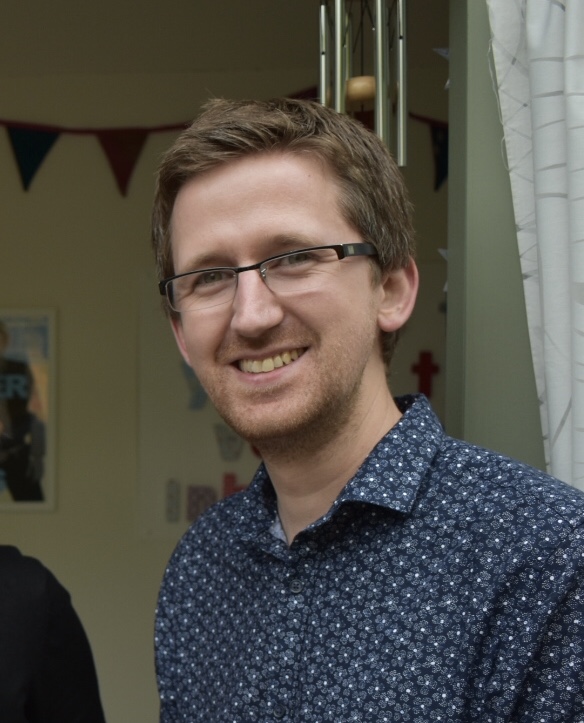Your cart is currently empty!

Patrice
Lawrence
When my daughter was young, I was a working single parent and found it very hard to keep my head above water – my salary would be swallowed into the gulf of my overdraft within two weeks and I wouldn’t be able to access any money for two weeks. At one point, I was looking down the back of the sofa for money to buy food. We lived in a flat on a council estate and neighbours were incredibly supportive during those tough times. So I definitely wanted to write about the power of community.
Patrice Lawrence

Gripping and immersive, Rat packs a powerful punch. Written by the award-winning author Patrice Lawrence, it follows a teenager called Al, who’s already faced so much adversity in his life and there seems to be no end in sight. Luckily, his pet rats, Venom and Vulture, give comfort from the outside world. Perfect for developing empathy, this eye-opening book covers a wide range of themes, including: poverty, crime and the importance of family. I was left with the overwhelming wish to save Al. Save him from misery. Save him from anger. Save him from himself.
I’d like to thank Patrice for joining us in the VIP Reading blog to talk about her latest book, Rat.
Firstly, congratulations on Rat, which I thoroughly enjoyed reading. Without giving too much away, can you tell us a little bit about the story?
Al is angry. His family is scattered and his only friends are Venom and Vulture, his pet rats. His mum has just come out of prison – again – and promised that this time things will be different. But when she’s caught shoplifting food for supper and sent back to prison, it’s another promise broken. It’s not Mum’s fault, though. It’s down to Mr Brayker, their neighbour, who’s had it in for Al and his mum since they moved in. So Al starts to plot his revenge. After all, he’s got nothing to lose, has he?
Where did the inspiration for Rat come from?
My contemporary stories are always inspired by both personal experience and from more than twenty years working in the not-for-profit charity sector. When my daughter was young, I was a working single parent and found it very hard to keep my head above water – my salary would be swallowed into the gulf of my overdraft within two weeks and I wouldn’t be able to access any money for two weeks. At one point, I was looking down the back of the sofa for money to buy food. We lived in a flat on a council estate and neighbours were incredibly supportive during those tough times. So I definitely wanted to write about the power of community.
I’ve also worked with organisations supporting families and children involved with social services and others working with the families of prisoners – and sadly, there is some overlap. The continued rhetoric about prisons being cushy absolutely infuriates me. Anybody who has visited a prison will know that certainly isn’t the case. (I absolutely recommend Carl Cattermole’s Prison: A Survival Guide for an accurate albeit very funny insight into English prison life.) Although I’ve visited a few prisons, I found women’s prisons toughest. The lovely folk at NEPACS, an organisation supporting the families of prisoners in north east England, gave me a photobook called The Road to Low Newton by Adrian Clarke. It’s a series of photo-portraits of women who had been imprisoned in HMP Low Newton with accompanying text giving an account in the women’s own words of how they ended up in prison. It’s honest, heart-breaking and unsurprising. Although the majority of the women are imprisoned for offences relating to their drug use, many have a history of childhood neglect and domestic violence. Many are also mothers and want the best for their children. Al’s mum, in Rat, has a supportive family, but even so, she is struggling.
How did your experiences prior to becoming a full-time writer, influence this book?
In addition to the above, I’ve also worked with organisations that support families and children with experience of social services child protection involvement. I’ve interviewed a number of families – frequently grandparents – who are looking after children because the children’s parents are unable to, often through imprisonment, addiction struggles or mental health difficulties. Often, these arrangements are sudden and unexpected – a social worker would suddenly arrive with traumatised and distressed children with many support needs. Again, I wanted to touch on this in Rat.
There are countless themes in the story but which were most important to you and why?
Community, particularly in working class and poorer neighbourhoods. There’s been much talk about ‘community’ during lockdowns, but in many places, it has always been there. I had a neighbour on my block who used to cook a mean Sunday dinner. He gave me great tips about making the best Yorkshire puds. He and his partner used to keep an eye on a young guy who was struggling with heroin addiction, taking food around to him. There was a woman on our block with openly racist views and who would completely blank me when she saw me, but knocked on the door with a present for my baby daughter.
In my review, I mentioned that I really wanted to jump into the story and save Al from himself and his awful situation. Was Al based on anyone in particular?
Funnily enough, no. I also have no idea why I wanted to write about rats! I have a bit of a rodent-phobia. (It doesn’t help that a mouse once jumped out of a box of Cheerios at me!) Though, with all characters, I take bits of myself. My biological father served a short prison term and he was so ashamed he wouldn’t talk about it. I’ve also felt Al’s sense of outsiderness and loneliness, growing up as the first in my family to be born in the UK and in a predominantly white area in Sussex. Like Al, I’m also often angry but I have outlets for my anger whereas Al is trapped by the decisions made by the adults around him.
The descriptions of poverty, hunger and prison, were hard-hitting. Was that always your intention?
My intention was to simply be realistic. Again, food poverty may be in the news now, but it is and has been everyday life for so many. The estate where I used to live qualified for regeneration money and the forward-thinking head of the primary school employed the cooks directly and bought in organic food. There was also a breakfast club. He knew that money was stretched for many families and wanted to make sure the children had a good meal which consequently supported their ability to concentrate and learn.
I was also on a secondary school visit in Liverpool in early 2020. The canteen serves hot drinks and toast during the first break; they explained that this may be the first hot meal some students may have that day. They also kept food parcels in the library to support families that needed that boost. It was fantastic that the school provided this, but how can we be in a society that relies on schools to stop children going hungry? I visit both private and state schools and the most shocking difference is the food given to children. I certainly don’t begrudge privately schooled students good food; I grew up in a low income household where my mother and stepdad always cooked fresh food. I wish more schools in lower income areas had the chance to cook great meals for their students too.
I think I actually went easy on prison! In some prisons, there are non-profit organisations that do fantastic pastoral work with prisoners and their families, as the prison service itself is too underfunded and deskilled to really focus on rehabilitation. When prisoners are released, they receive the grand sum of a £46 discharge grant to help with the first few days after release. The amount hasn’t changed since the mid-90s. It doesn’t go far.
Al’s rats, Venom and Vulture, are so important to him. What was the reason for such a choice of pets?
I have been told that rats are much misunderstood! They seemed an appropriate for a boy like Al. I also wanted to show that Al is very capable of love and loyalty even if other only saw an angry young man.
What challenges did you face when writing Rat in this dyslexia-friendly format and what were the positives?
I actually thought as Al as an ideal reader of Rat, so it helped me shape the way he expressed himself. There is a mantra in creative writing that ‘every word counts’ and in these books, it most certainly does! Creating a book for publication is always, to some degree, a collaborative process, working with the editors to make sure that the words on the paper do exactly what they’re supposed to. With Rat, there was more collaboration as it involved editors from both OUP and Barrington Stoke, plus additional editing to make the book dyslexia-friendly as well as attractive to reluctant readers. I knew that I shouldn’t get too hung up on using certain words, so the focus for me was making sure that the storyline was strong enough to play with the way it could be articulated. (If that makes sense!)
We would love to know whether you are currently working on any other books. What are you allowed to tell us?
My next full length contemporary YA is published in summer. Splinters of Sunshine takes the character of DNA-Dad from Eight Pieces of Silva on a road journey with a son, Spey, he wants to get to know but who is completely different from him. They are trying to find Spey’s vulnerable friend, Dee, who is caught up in ‘county lines’ drug-dealing on the sough coast. It contains Queen anthems, wildflowers and forgiveness.
Finally, can you describe Rat in three words?
Not for musophobes!

Q & A hosted by
Rob McCann